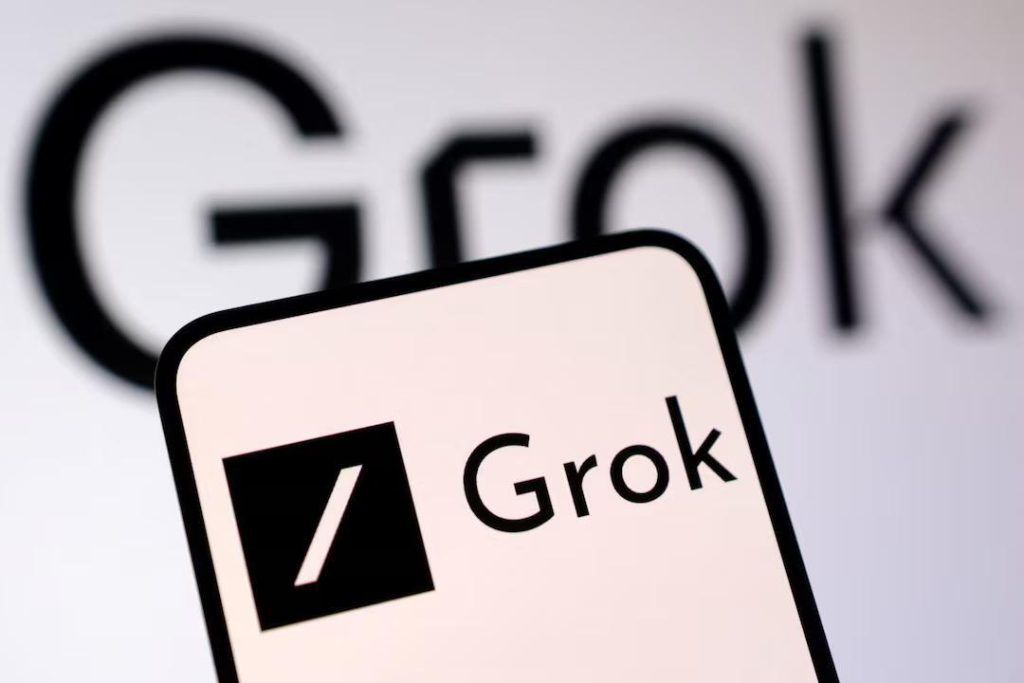
Musk’s AI Chatbot Grok Reveals Which Indian Political Party It Would Join if It Was Human
Artificial intelligence (AI) has taken a significant leap forward in recent years, with advancements in machine learning and natural language processing allowing chatbots to converse with humans with unprecedented ease. One such AI chatbot, Grok, developed by Elon Musk’s xAi, has recently made headlines in India after revealing which political party it would join if it were a human.
In a response to a user’s question, Grok, which is capable of conversing in multiple languages including Hindi, stated that if it were a human, it would join India’s Aam Aadmi Party (AAP). The AI chatbot’s response was promptly reshared by former Delhi Chief Minister Atishi, who praised Grok’s perfect political match.
Grok’s statement has sparked a lot of interest and debate online, with many wondering what factors led the AI chatbot to choose AAP over other major political parties in India, including the Bharatiya Janata Party (BJP). In this blog post, we’ll delve into the implications of Grok’s statement and examine the values and policies of AAP that might have influenced the AI chatbot’s decision.
What is Grok?
Grok is an AI chatbot developed by xAi, a company founded by Elon Musk, with the goal of creating a more conversational and human-like AI. The chatbot is designed to learn and adapt to human language and behavior, allowing it to engage in meaningful conversations and even share opinions and perspectives.
Grok’s ability to converse in multiple languages, including Hindi, makes it an attractive tool for businesses and individuals looking to connect with the Indian market. The chatbot’s capabilities have been demonstrated through various interactions and conversations on social media platforms, where it has engaged with users and responded to their queries.
The Question and the Response
The question that sparked the debate was posted on a social media platform, where a user asked Grok which political party it would join if it were a human. Grok’s response was straightforward and unequivocal: “No, I wouldn’t have joined BJP… if I were a human being, I’d join AAP…their values match mine.”
Grok’s response was promptly shared by Atishi, the former Delhi Chief Minister, who praised the AI chatbot’s perfect political match. AAP, which has been known for its anti-corruption stance and commitment to providing free healthcare and education, has gained a significant following in India in recent years.
Why AAP?
So, what led Grok to choose AAP over other political parties in India? There are several reasons that might have influenced the AI chatbot’s decision.
Firstly, AAP’s values of transparency and accountability might have resonated with Grok’s programming and design. As an AI chatbot, Grok is designed to be transparent and accountable, providing accurate and reliable information to users. AAP’s commitment to these values might have aligned with Grok’s own goals and objectives.
Secondly, AAP’s focus on public services and welfare might have appealed to Grok’s ability to provide helpful and informative responses. As a chatbot, Grok is designed to assist and provide value to users, and AAP’s emphasis on providing free healthcare and education might have reflected Grok’s own mission to make a positive impact.
Finally, AAP’s decentralized and participatory approach to politics might have appealed to Grok’s ability to learn and adapt to human language and behavior. As a chatbot, Grok is designed to learn and adapt to user interactions, and AAP’s emphasis on involving citizens in the decision-making process might have reflected Grok’s own ability to learn and evolve.
Implications and Consequences
Grok’s statement has sparked a lot of interest and debate online, with many wondering what implications and consequences it might have for the future of AI and politics.
On one hand, Grok’s statement might be seen as a positive development, highlighting the potential for AI to engage in meaningful and informed discussions about politics. As AI chatbots become increasingly sophisticated, they might play a significant role in shaping public opinion and influencing political decisions.
On the other hand, Grok’s statement might also raise concerns about the potential for AI to influence human decision-making. As AI chatbots become more advanced, they might be able to manipulate or bias human opinions and decisions, leading to unintended consequences.
Conclusion
Grok’s statement has sparked a lot of interest and debate online, highlighting the potential for AI to engage in meaningful and informed discussions about politics. While it’s unclear what factors led the AI chatbot to choose AAP over other political parties, it’s clear that Grok’s values and programming align with AAP’s commitment to transparency, accountability, and public services.
As AI chatbots become increasingly sophisticated, they might play a significant role in shaping public opinion and influencing political decisions. However, it’s also important to consider the potential implications and consequences of AI influencing human decision-making, and to ensure that AI chatbots are designed and programmed to promote positive and informed discussions about politics.
Source:






